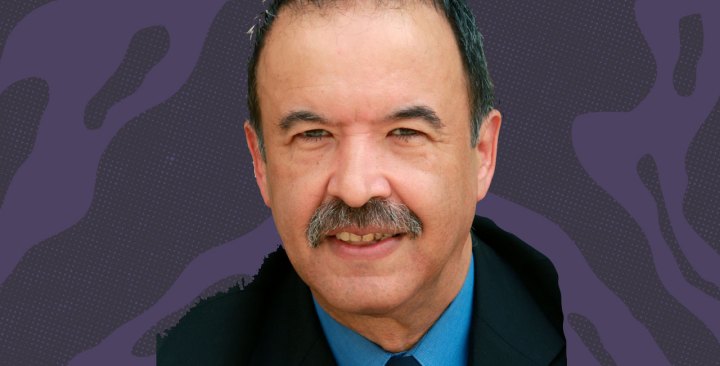Remembering El Puente Founder Luis Garden Acosta & His Dedication to Williamsburg’s Los Sures

Art by Alan López for Remezcla
New York State Senator Gustavo Rivera called him trailblazing. Representative Nydia Velázquez said he “always represented the best of Brooklyn.” And organizer and journalist Rosa Clemente said he taught her the importance of people of color having spaces “for us by us.” With their words, the three of them begin to paint a portrait of Luis Garden Acosta’s legacy. On Tuesday night, news broke that the mentor, activist, and founder of El Puente who helped revitalize a Brooklyn neighborhood died at the age of 73.
Born in Fort Greene in 1945 to a Dominican father and Puerto Rican mother, Garden Acosta grew up in an activist household. His mother, Maxima Garden Acosta, became an activist after her fiancé died at a peaceful protest in 1937. She also helped smuggle undocumented immigrants to New York and found them work, according to The New York Times. He also learned at a young age that people of color didn’t have equal opportunities. As a 9-year-old, he tagged along a friend’s visits to Virginia to see family. He hoped to see a movie they had missed out on back in Brooklyn, but his friend said they shouldn’t because of segregation. “How could it be true that I was brown and couldn’t go somewhere?” he told The Daily News in 1999. “I was so hurt. I can still feel it. I was angry. I was sad. Something pierced my soul.”
And though Garden Acosta always felt concern for his community, his future might have turned out differently if he had followed through on his plans to become a priest or a doctor. After earning a college degree, Garden Acosta began a year in seclusion while working with people from low-income backgrounds, but then watching Martin Luther King Jr. in 1963 inspired him to make a change. Without taking his final vows, he left the Congregation of the Most Holy Redeemer and poured himself into activism, namely he joined the protest against the war in Vietnam and the Catholic Worker Movement. He joined the Young Lords and worked for the rights of Latinos. By 1970, he decided to attend Harvard University and become a doctor, but he didn’t complete his degree. Instead, he turned to radio, with the help of his medical background. “I was the nation’s first public health disc jockey,” he said. He wanted to syndicate the show and worked as an administrator at Greenpoint Hospital, which is when he felt compelled to do something about the violence in his community.
Williamsburg had a high level of teens joining gangs, and at the hospital, he saw children and young adults affected by the violence. “One weekend I decided to figure out if there was some way we could save their lives,” Garden Acosta told The New York Times. “And you know, as God would have it, it was maybe a half an hour into my weekend when a young woman was brought in, 19 going on 20. Her name was Sugar. They tried to resuscitate her… The doctor had to go out into the hallway and tell the young woman’s husband that she had died. I still remember, because it haunts me, the cries throughout that hallway: ‘How can it be? What do I tell my daughter?’ And I started crying. And that’s when I decided that this would end.”
In 1982, he founded El Puente. Calling on church leaders, health providers, activists, educators, and more, Garden Acosta built a team determined to stop the violence in Los Sures in Williamsburg, Brooklyn.
In the nearly four decades since El Puente’s founding, the organization conducted an asthma study, started the country’s first public high school for human rights, co-founded the Latino Commission on AIDS, and enacted many more initiatives that improved the quality of life in big and small ways for his community.
Garden Acosta did many notable things throughout his life, and it’s because of him that many youths were able to see more possibilities in their lives. Journalist and photographer Eneide I. DelValle credits him for giving her a place to grow and learn. DelValle tweeted, “As a kid growing up in Los Sures, @elpuentepalante was my solace from the drugs & violence that plagued it. I learned to play drums & studied dance.”
As people dedicate tribute after tribute for Garden Acosta, we can’t forget that we need to continue his work. El Puente still needs your support. His family and friends are asking for donations to be made to El Puente “to help celebrate the passion, purpose, and power of community that he believed in.”